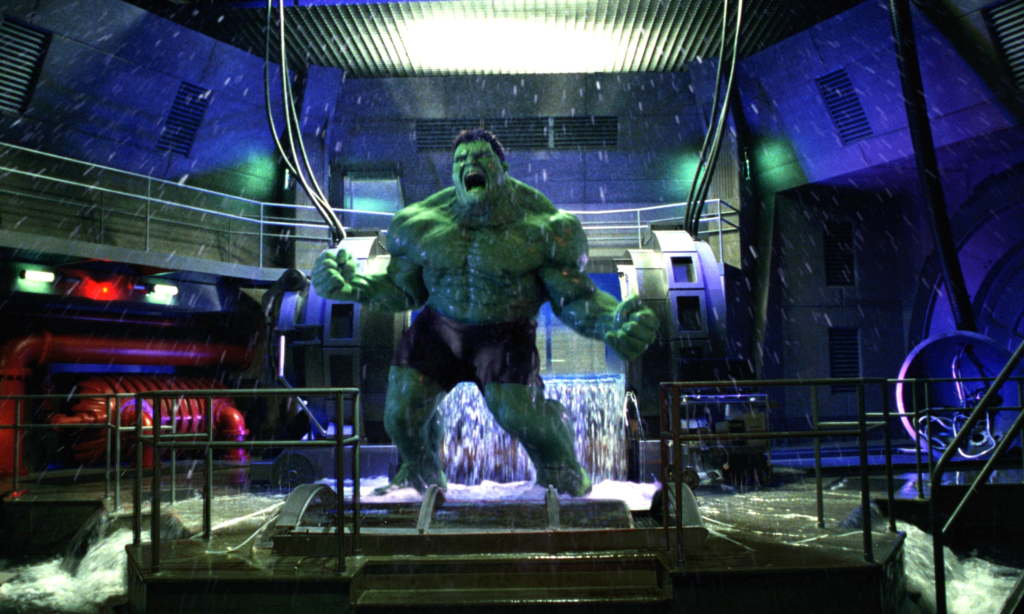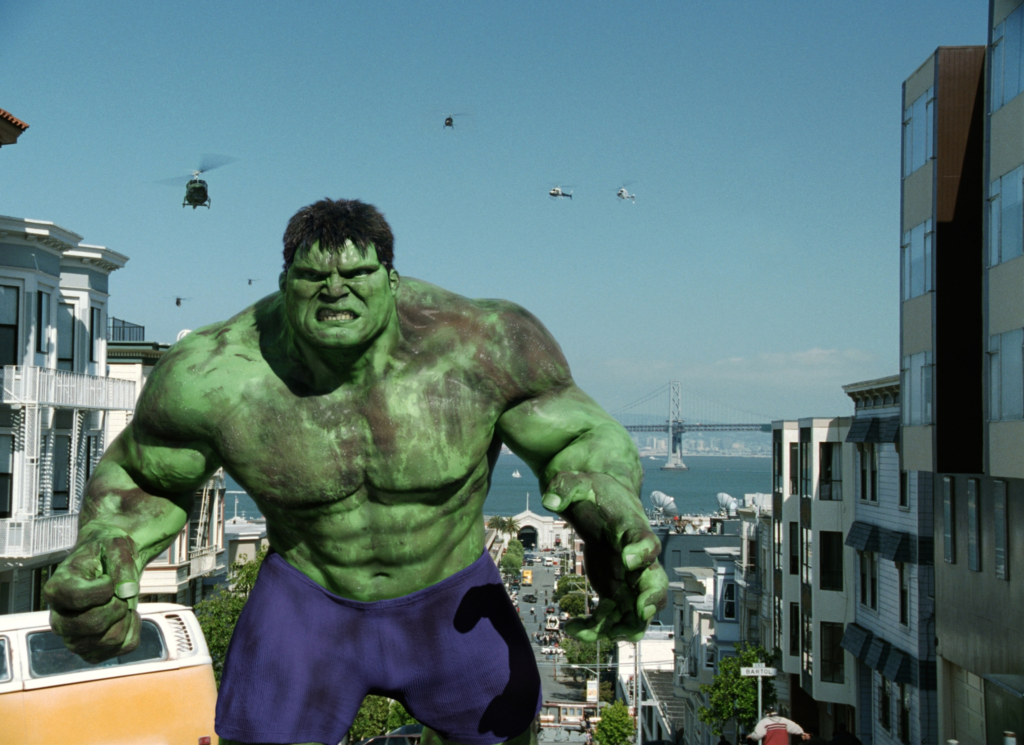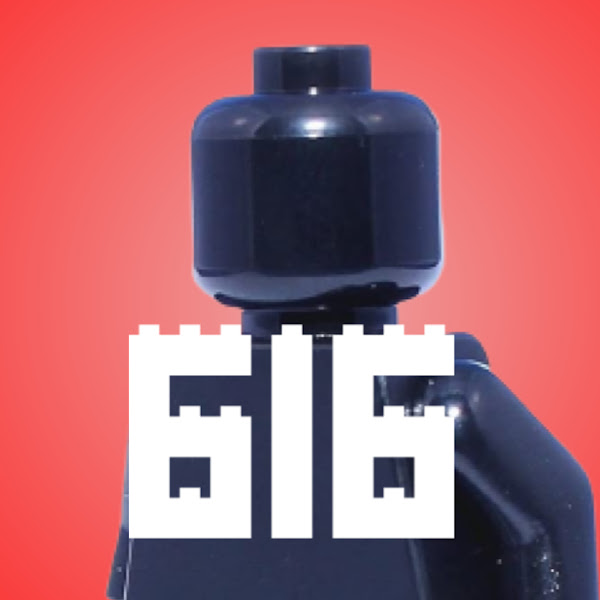
The 2003 Hulk film, directed by Ang Lee, is a unique entry into Marve’s movie list. Unlike most superhero films, it takes an introspective approach to the character, exploring his internal struggles and emotions in a way that is kinda ambitious but also… flawed.
Like a little kid tryna do a backflip. Cool, the ambition is great – until bro bumps his head on the floor.
One of the most striking aspects of the film is its visual style. Lee employs a range of techniques, from split screens to comic book-style paneling, to create a sense of dynamic energy. The use of different camera angles and perspectives is particularly effective, giving the film a cinematic quality that sets it apart from other comic book adaptations.
LIKE LOOK HOW GREEN HE IS DOE.

He’s also like, 16 feet, and there’s scenes where he gets SIGNIFICANTLY bigger, where as in the MCU he’s like 9 feet or something. I always figured that the Hulk gets bigger as he gets angrier, but this is the first and only movie to really depict that.
At the heart of the film is the relationship between Bruce Banner, played by Eric Bana, and his father David, played by Nick Nolte. The film explores the complicated dynamics between fathers and sons, and how those relationships can shape and define us. However, while this story is compelling in theory, in practice it feels underdeveloped and rushed, with key plot points and character motivations left unexplored.
Another issue with the film is its pacing. The first act is slow and ponderous, setting up the central conflict but failing to engage the audience in a meaningful way. The middle act, which sees Banner on the run from the military, is more engaging, but is also hampered by poor pacing and clunky exposition. The final act, which features a massive battle between Hulk and several other super-powered creatures, is visually impressive but lacks emotional weight or stakes.

Despite these shortcomings, the film does have some noteworthy moments. The scene where Hulk battles tanks in the desert is particularly memorable, as is the final confrontation between Hulk and his father. Additionally, some of the supporting characters are well-drawn, particularly Betty Ross, played by Jennifer Connelly, whose relationship with Banner provides some of the film’s more touching moments.
Also funnily enough, this film ends with Bruce fleeing to South America, which is exactly where the 2008 “Incredible Hulk” movie begins, even though they are apparently in different universes.
Speaking of which, if you want to read my INCREDIBLE review on the Incredible Hulk, click here.
Ultimately, the 2003 Hulk film is an interesting but overally, meh entry into the history of Hulk adaptations. While it attempts to explore complex themes and emotional conflicts, it often fails to connect with the audience in a meaningful way, and its pacing and storytelling can be uneven. Nevertheless, it remains a noteworthy and visually impressive film that showcases the range and ambition of the superhero genre.
Leave a comment to let me know what you thought, was it cash or trash? And head over to my fan area forums page to get the convo started!
